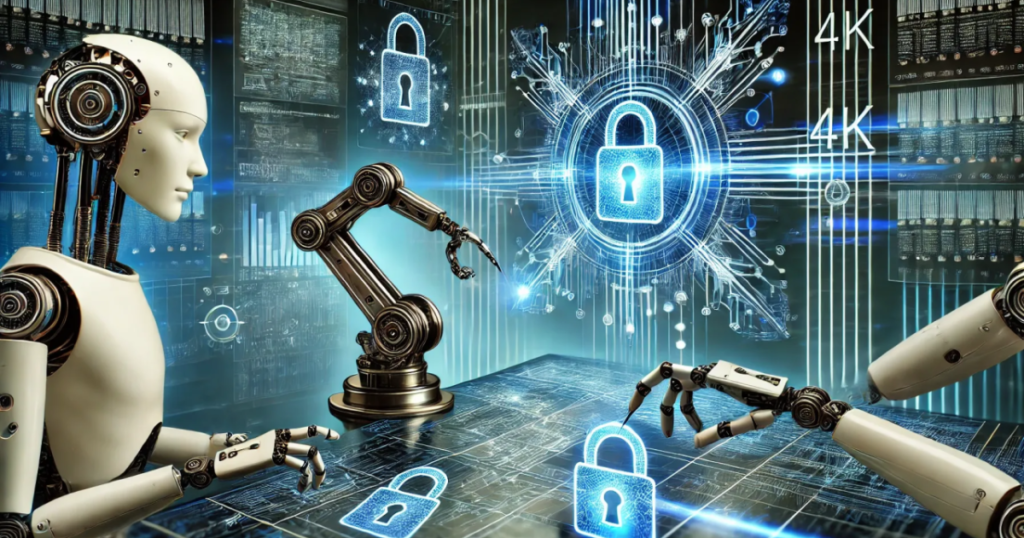Introduction
Artificial Intelligence (AI) has revolutionized many industries, and recruitment is no exception. Companies increasingly rely on AI-powered tools to streamline the hiring process, reduce bias, and improve efficiency. However, this technological advancement raises significant ethical concerns. From potential bias in AI algorithms to the displacement of human workers, the use of AI in hiring and job automation presents a complex moral dilemma. This article explores these issues, the risks involved, and how companies can balance efficiency with fairness.
How AI Is Used in Hiring
AI is now integrated into various stages of the hiring process, including:
- Resume Screening – AI algorithms filter resumes based on keywords, past experiences, and educational background.
- Chatbots & Virtual Interviews – AI-powered chatbots conduct initial screenings, asking candidates standardized questions.
- Predictive Analytics – AI assesses candidates based on their online presence, previous job performance, and assessment scores.
- Facial Recognition & Behavioral Analysis – Some companies use AI-driven facial analysis tools to assess candidate expressions and body language during video interviews.
- Automated Skill Assessments – AI-based tests evaluate technical or cognitive skills, helping recruiters make data-driven decisions.
While AI makes hiring more efficient, it also introduces new challenges that can have far-reaching consequences.
The Ethical Concerns of AI in Hiring
1. Algorithmic Bias & Discrimination
AI systems learn from historical data, which may contain biases. If past hiring decisions favored certain demographics, AI models may unintentionally reinforce these patterns, leading to unfair outcomes. Examples of AI bias in hiring include:
- AI discriminating against women in tech roles due to historical male dominance in the industry.
- Algorithms prioritizing applicants from prestigious universities while overlooking equally qualified candidates from less-known institutions.
- Racial bias in facial recognition software affecting diverse candidates differently.
2. Lack of Transparency & Accountability
AI algorithms operate as “black boxes,” meaning their decision-making processes are often unclear. Candidates may be rejected without knowing why, making it difficult to challenge or rectify biased decisions. Without transparency, companies cannot ensure fairness or accountability in hiring.
3. Privacy Concerns
AI hiring tools collect vast amounts of personal data, including social media activity, browsing history, and facial expressions. If mishandled, this data could be used unethically or be vulnerable to breaches. The lack of strict data protection laws in some regions exacerbates these concerns.
4. Dehumanization of Hiring
Hiring is not just about qualifications; it’s about personality, values, and interpersonal skills. AI-driven hiring may overlook human aspects that are crucial for a good employer-employee match. Over-reliance on AI can lead to a loss of human intuition in assessing candidates.
5. Job Displacement & Automation
As AI takes over hiring roles, traditional HR professionals may see job losses. Additionally, AI-driven automation extends beyond recruitment, replacing workers in various industries. While AI creates new jobs, the transition period can be challenging for those displaced.

Balancing AI Efficiency with Ethical Hiring
To address these ethical concerns, companies and policymakers must take a proactive approach. Here are some solutions:
- Bias Audits & Fairness Testing – Regularly testing AI algorithms for bias can help mitigate discriminatory hiring practices.
- Transparency in AI Decisions – Companies should explain how AI makes hiring decisions and provide feedback to rejected candidates.
- Human Oversight – AI should assist, not replace, human recruiters. A hybrid approach ensures that human judgment complements AI efficiency.
- Data Privacy Regulations – Stricter laws, like the GDPR, should be enforced to protect candidates’ personal information.
- Reskilling & Workforce Transition Programs – Companies should invest in retraining employees affected by AI-driven automation.
The Future of AI in Hiring
The role of AI in hiring will continue to expand, making recruitment faster and more data-driven. However, ethical considerations must be prioritized to ensure fairness, transparency, and respect for human dignity. The challenge lies in leveraging AI’s power while maintaining ethical hiring standards that benefit both employers and employees.
Conclusion
AI in hiring presents both opportunities and challenges. While it offers efficiency, cost savings, and improved decision-making, it also carries risks of bias, discrimination, and job displacement. Ethical hiring practices should balance AI’s capabilities with fairness, ensuring that technology serves as a tool for inclusivity rather than exclusion. As AI continues to shape the workforce, companies must navigate this ethical dilemma responsibly, fostering a fair and transparent hiring landscape for all.